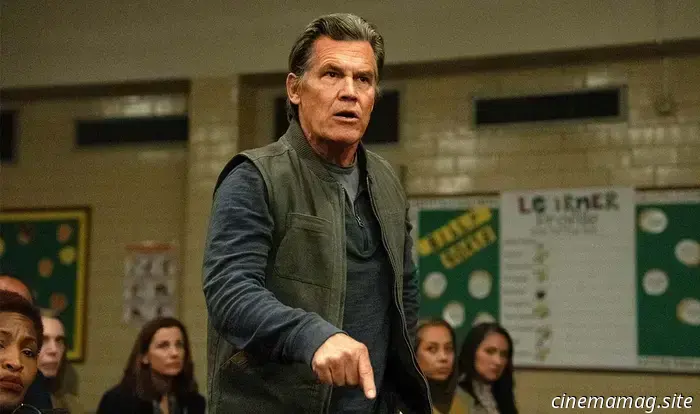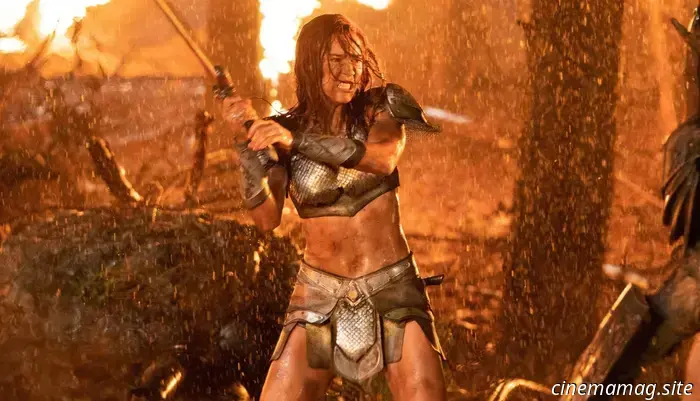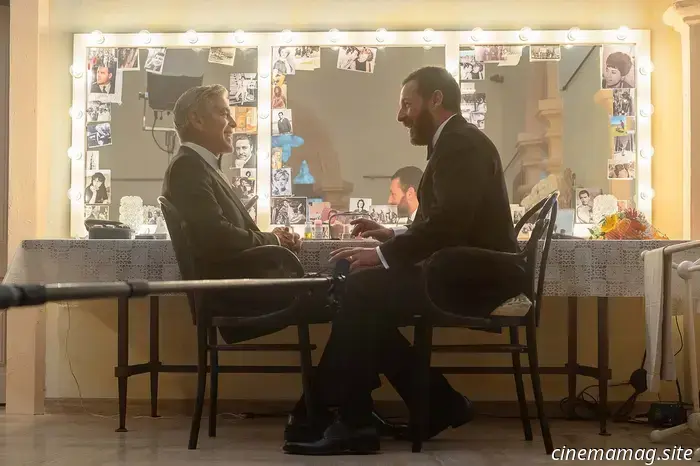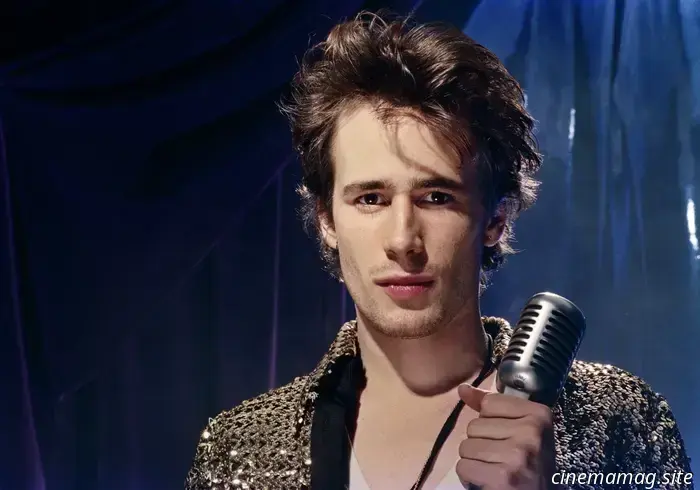
Weapons Review: An Expansive Horror Narrative That Falls Short in Emotional Impact
For as long as we've been aware of Weapons, writer-director Zach Cregger’s highly anticipated follow-up to his 2022 darkly humorous splatter hit Barbarian, it has been repeatedly described as the supernatural horror genre's grand equivalent to Magnolia—an elevator pitch that may not be the most marketable but certainly grabs the attention of cinephiles. Cregger has not attempted to refute this comparison, stating that PTA’s operatic Los Angeles tale is his primary inspiration. Coupled with a mysterious marketing campaign, the film arrives on screens veiled in secrecy and with a vague promise of a bold vision from a rising filmmaker. However, if Weapons does indeed take a sharp turn, it is because Cregger has successfully captured the sprawling, ambitious, genre-crossing essence of that ensemble drama but fails to delve into the emotional complexities of his flawed characters, often avoiding their moral ambiguities. While the film is entertaining, it lacks depth in relation to its charged themes; it resembles a trick, maintaining a deliberate distance until one can figure out how its parts connect rather than engaging with the individuals involved.
Cregger has claimed that Weapons is a personal narrative that should not be interpreted as a political allegory. This is a bold assertion, especially when the film immediately immerses us in a town hall reminiscent of those seen after school shootings. Here, we meet Justine Grandy, a schoolteacher entangled in conspiracy theories, believed to be the "witch" responsible for the overnight disappearance of almost all her students. Julia Garner portrays Justine in a way that reveals more than the script does; on the page, she is presented as an enigma early on, reflecting Cregger’s choice to make all characters shrouded in mystery until the larger picture becomes clear.
Garner's performance (which ranks among her best since The Assistant) conveys the nuances of a recovering addict who finds purpose in her work, from which the school principal (Benedict Wong) insists she take a leave. However, the script deliberately portrays her as an unreliable narrator; her understandable nightmares following the children's disappearance are depicted as hallucinations, highlighting her unstable condition. This misdirection is evident, and this introductory chapter—which is the longest in Weapons—suggests Cregger’s attempt to imitate the unsettling intrigue of Barbarian’s opening text.
The most significant issue with Weapons is that we fail to sense the true weight of the tragedy and its impact on the community beyond that first meeting and the sporadic glimpses of missing posters. The only parent we truly engage with is Josh Brolin’s Archer Graff, presumably named for the charts and graphs he uses to trace the children's disappearances after scrutinizing extensive Doorbell-cam footage. A compelling film could be made exploring how grief can transform us into existential detectives seeking answers for incomprehensible tragedies—that film is called The Shrouds, where David Cronenberg immerses you in the protagonist’s mind, grappling with why people in emotional turmoil often embrace conspiracy theories. Cregger permits us to glimpse Archer’s grief only once, during an elaborate dream sequence, and if you’re like me, you might be distracted by the presence of a Mad Max: Fury Road poster on his 8-year-old son’s bedroom wall. Archer’s emotional turmoil—and that of any other character—loses its complexity as Cregger prioritizes the mystery, even at the expense of adding depth or relatable resonance to the individuals ensnared by it.
In subsequent segments, this avoidance of anything too provocative becomes more evident as the focus shifts to Paul Morgan (Alden Ehrenreich), Justine’s ex-boyfriend who exposes himself to complications while trying to suppress footage of him assaulting a handcuffed suspect (Austin Abrams). The presence of a rare instance of police violence between white officer and white victim suggests some self-awareness from Cregger—that to depict anything else would necessitate engaging in discussions about systemic racism, a subject he appears too hesitant to tackle. Given how adeptly Barbarian balanced its unflinching social commentary with genre excitement, it’s disappointing to see him take a more cautious approach here, with themes introduced similarly to school shootings and far-right conspiracy theories—through imagery that invites you to make connections, though the narrative lacks the courage to directly address and weave them in.
Weapons shines when it fully embraces dark fairytale elements. The opening and closing monologues from a child recounting the tragedy resemble not so much the introductory voiceover of Magnolia but rather a ghost story told around a campfire, with the final line serving as a haunting closing thought for recent horror films, reframing the tale as one passed down through generations. The arrival of Amy Madigan as Gladys, the aunt of the only boy in Justine’s class who didn’t vanish, taps into fairytale tropes of the deceptive guardian harboring sinister intentions. Madigan brings in much-needed levity, and her mid-film introduction shifts
Other articles
 Mondo has revealed the sixth scale figures of She-Ra and Swift Wind from the Masters of the Universe series.
In honor of 40 years of the Princess of Power, Mondo has introduced its deluxe sixth scale figures of She-Ra and Swift Wind from the Masters of the Universe line. These figures can also be bought as a bundle that includes exclusive accessories such as mini figures of Swifty’s baby and Loo-Kee. The collectibles will be available for purchase starting August 5th.
Mondo has revealed the sixth scale figures of She-Ra and Swift Wind from the Masters of the Universe series.
In honor of 40 years of the Princess of Power, Mondo has introduced its deluxe sixth scale figures of She-Ra and Swift Wind from the Masters of the Universe line. These figures can also be bought as a bundle that includes exclusive accessories such as mini figures of Swifty’s baby and Loo-Kee. The collectibles will be available for purchase starting August 5th.
 Images of Red Sonja highlight the cast of the fantasy reboot.
With the long-awaited release of Red Sonja this month, a fresh set of promotional images for the M.J. Bassett-directed action fantasy has surfaced online. These images feature Matilda Lutz (Revenge) in the lead role as the She-Devil with a Sword, alongside co-stars Eliza Matengu, Lucas Pasqualino, Martyn Ford, Rhona Mitra, Robert Sheehan, Veronica Ferris, and Wallis […]
Images of Red Sonja highlight the cast of the fantasy reboot.
With the long-awaited release of Red Sonja this month, a fresh set of promotional images for the M.J. Bassett-directed action fantasy has surfaced online. These images feature Matilda Lutz (Revenge) in the lead role as the She-Devil with a Sword, alongside co-stars Eliza Matengu, Lucas Pasqualino, Martyn Ford, Rhona Mitra, Robert Sheehan, Veronica Ferris, and Wallis […]
 Jay Kelly Trailer: Noah Baumbach Pairs George Clooney and Adam Sandler for a European Journey
Reuniting with Netflix following his ambitious but flawed film White Noise, Noah Baumbach is turning inward. Jay Kelly features George Clooney and Adam Sandler as a film star and his manager, respectively, as they contemplate their lives and careers during a journey across Europe. The screenplay, co-written by Baumbach and Emily Mortimer, also includes a cast that
Jay Kelly Trailer: Noah Baumbach Pairs George Clooney and Adam Sandler for a European Journey
Reuniting with Netflix following his ambitious but flawed film White Noise, Noah Baumbach is turning inward. Jay Kelly features George Clooney and Adam Sandler as a film star and his manager, respectively, as they contemplate their lives and careers during a journey across Europe. The screenplay, co-written by Baumbach and Emily Mortimer, also includes a cast that
-Movie-Review.jpg) Freakier Friday (2025) - Film Review
Freakier Friday, 2025. Directed by Nisha Ganatra. Featuring Lindsay Lohan, Jamie Lee Curtis, Julia Butters, Sophia Hammons, Mark Harmon, Manny Jacinto, Maitreyi Ramakrishnan, Christina Vidal, Haley Hudson, Chad Michael Murray, Lucille Soong, Rosalind Chao, Vanessa Bayer, Jordan E. Cooper, Stephen Tobolowsky, Chloe Fineman, and Elaine Hendrix. SYNOPSIS: Two decades after Tess and Anna went through a switch in identities [...]
Freakier Friday (2025) - Film Review
Freakier Friday, 2025. Directed by Nisha Ganatra. Featuring Lindsay Lohan, Jamie Lee Curtis, Julia Butters, Sophia Hammons, Mark Harmon, Manny Jacinto, Maitreyi Ramakrishnan, Christina Vidal, Haley Hudson, Chad Michael Murray, Lucille Soong, Rosalind Chao, Vanessa Bayer, Jordan E. Cooper, Stephen Tobolowsky, Chloe Fineman, and Elaine Hendrix. SYNOPSIS: Two decades after Tess and Anna went through a switch in identities [...]
 Boys Go to Jupiter Review: A Nightmare Landscape of Late-Stage Capitalism in an Open-Source Format
Boys Go to Jupiter, an animated film created and scripted by Pittsburgh-based 3D artist Julian Glander, is a genuine reflection of the current era. According to the press materials: "[The film] was self-produced and fully animated in just 90 days using the free open-source 3D modeling software Blender. Peisin Yang Lazo served as executive producer."
Boys Go to Jupiter Review: A Nightmare Landscape of Late-Stage Capitalism in an Open-Source Format
Boys Go to Jupiter, an animated film created and scripted by Pittsburgh-based 3D artist Julian Glander, is a genuine reflection of the current era. According to the press materials: "[The film] was self-produced and fully animated in just 90 days using the free open-source 3D modeling software Blender. Peisin Yang Lazo served as executive producer."
 It’s Never Over, Jeff Buckley Review: A Beautiful Tribute to a Gifted, Tragic Life
Amy Berg's documentary It's Never Over, Jeff Buckley serves as both a remarkable archival record and a tribute to the life of a troubled artist. Although the phrase "tortured artist" is often overused, it resonates particularly well in the context of Buckley. He was a striking individual with an almost indescribably stunning voice, weighed down by the tragedy of existence.
It’s Never Over, Jeff Buckley Review: A Beautiful Tribute to a Gifted, Tragic Life
Amy Berg's documentary It's Never Over, Jeff Buckley serves as both a remarkable archival record and a tribute to the life of a troubled artist. Although the phrase "tortured artist" is often overused, it resonates particularly well in the context of Buckley. He was a striking individual with an almost indescribably stunning voice, weighed down by the tragedy of existence.
Weapons Review: An Expansive Horror Narrative That Falls Short in Emotional Impact
Since the moment we learned about Weapons, writer-director Zach Cregger’s eagerly awaited sequel to his 2022 darkly comedic splatter hit Barbarian, there has been persistent talk of it being the supernatural horror genre’s grand parallel to Magnolia. While this may not be the most appealing elevator pitch, it certainly aims to grab the attention of the typical film enthusiast.
